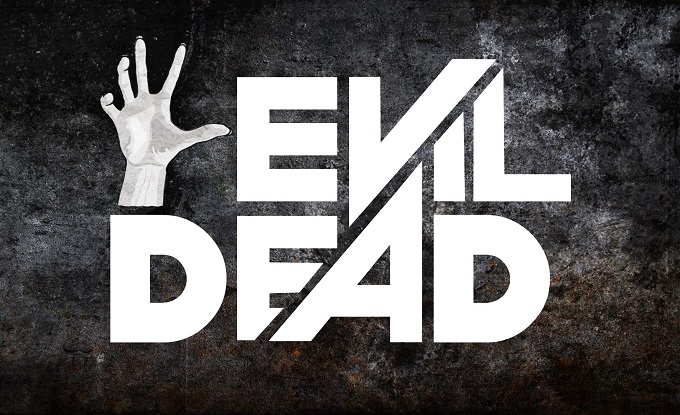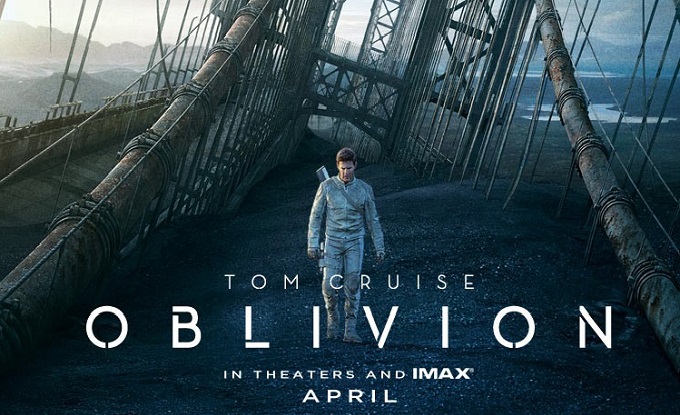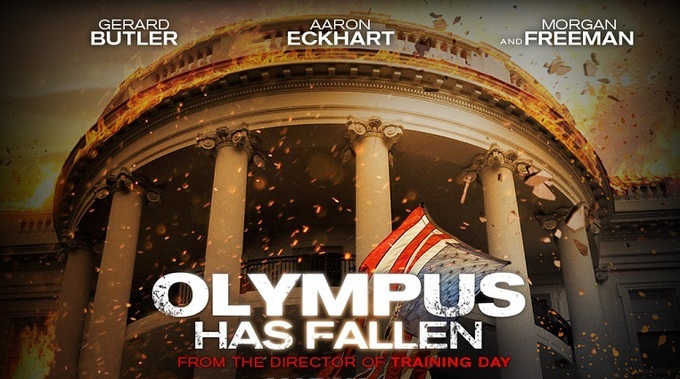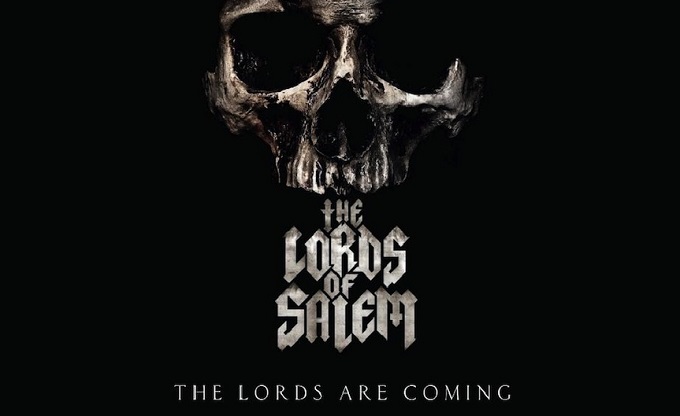Beautiful Thing Review

The Plot
Set on a rough-diamond of a Thamesmead estate, mouthy single Mum Sandra holds together an eclectic bunch of disenfranchised kids. Her son, 15 year old Jamie is beginning to experience the joys of bunking PE lessons much to his mother’s feisty disapproval. Meanwhile, Sandra’s posh hippie lover-boy doesn’t see what the fuss is about, choosing to don his girlfriend’s skimpy dressing gowns and prance about the stage.
Friend and next-door neighbor, Leah, has been excluded from school and so has turned her attentions to perfecting her Mama Cass impersonation. The final piece in this concrete jigsaw is neighbor Ste, who finds refuge in Sandra’s flat as he escapes his abusive father.
Of course, as so often good stories are, this is a love story through and through as a relationship blossoms between Ste and Jamie and the pair fall head-over-heels in love.
The Good
Quite simply, this is the most stunning, beautiful, hilarious, powerful and (oh heck) the best play we’ve ever seen in the West End. In a nutshell, the play combines the intimacy and realistic acting that we all know and love from film and telly with the immediate presence and raw, live experiences of theatre. It’s a winning combination.
Beautiful Thing superbly explores the challenges, pains and joys of first love. Though it’s rightly praised for it’s sensitive handling of specific issues surrounding gay relationships the social and emotional themes tackled by this flawless production are universally applicable. Though the play cannot avoid having political significance, particularly given the current global debate about gay marriage, it goes beyond soapbox politics to effect audiences in a much more profound and emotionally effective way.
The play’s core cast of Suranne Jones (Sandra), Jake Davies (Jamie) and Danny-Boy Hatchard (Ste) are all absolutely fantastic as they breath dramatic life into the respective tribulations of parenthood and endearingly tentative romance. Watching a believable family and young couple deal with gay love offers an undeniably effective argument for tolerance and gay rights.
The Bad
It’s rare even for the high standards of the West End, but for once it’s hard to find a flaw in this production.
The Ugly Truth
It’s twenty years since Jonathan Harvey’s gay coming-out/coming-of- age story first took to the stage and it continues to grow more relevant and poignant. The play’s run has coincided (almost, too) perfectly with the rest of the world’s antics. The opening night just so happened to fall on the same day that New Zealand passed legislation in support of gay marriage. We urge you to support this superb production and visit the Art theatre before it’s run end son 25th May.
Exclusive Cast Interviews below from the official After Party:
Evil Dead Review

The Plot
A group of teenagers gather together in a desolate cabin in the woods to help their friend overcome her drug addiction. But, when a hidden basement containing a deadly book is found, a bloodbath soon begins.
The Good
Usually, when Hollywood dares to touch the legacy of cult classics in the form of the dreaded remake; it doesn’t go all too well. However when the writer/director, lead actor and producer of the original are all producing said remake as in this case, it’s a blessing.
Evil Dead is everything fans of the first will hope for, and serves well as an introduction to newcomers. The blood, guts and gore are all turned up to eleven in true Sam Raimi style along with lovely nods to the film that started it all, which will have old fans giggling in glee and new ones witnessing in wonder. And it seems that the franchise is on its way to resurrection, with a sequel already planned and a continuation of the original series in the works. With this will surely come the rise of a new fan base along with the resurrection of the old one.
With a ninety minute runtime, the film gets into the swing of things quite quickly, with dismembered body parts being thrown around the screen like there’s no tomorrow. It also seems that there’s no limit to the amount of blood that can be used in one film. This is definitely not one for the squeamish…
The Bad
Anyone who’s seen the original won’t be very surprised with the remake. Although there are some changes, most notably the added back story of a drug addicts intervention, it’s really nothing you won’t have seen before. The script doesn’t seem to want to dwell too much on character and story building and instead tries to get that part over as soon as possible in order to get to what sells.
The demon possessions and jump scares seem to go on and on, making a ninety minute film seem more like two hours. Just as you think the film is slowing down to the end credits, all of a sudden it will speed right back up again.
And of course, as seems to happen with most films these days, scenes which might have sold the film to you in the trailer don’t actually make the final cut.
The Ugly Truth
Evil Dead is definitely one for the fans. A great throwback to a horror which defined a generation and will forever live in film censor’s memories. Whilst there are no real risks taken in the remake, it will at least leave you wanting to go back and watch the originals again. As well as hopefully make newcomers want to give the originals a try for the first time.
Check out our video Interviews below with Director Fede Alvarez and beautiful star Jane Levy:
Oblivion Review

The Plot:
In the aftermath of an apocalyptic nuclear war against alien invaders the Earth has become an inhospitable wasteland. Humanity has taken refuge on the distant Moon of Titan, leaving behind machines to salvage what’s left of the planet’s precious natural resources. Jack Harper is one of the few humans left behind to protect those machines from the remnant of the defeated alien army. With just weeks left until his mission is completed he finds himself increasingly haunted by strange dreams and unanswered questions. What he discovers in the wreckage of a crashed spaceship might change everything.
The Good:
Oblivion is an ambitious and intelligent science fiction film developed over 8 years by Writer and Director Joseph Konsinski. It’s refreshing given that Hollywood studios so often see the genre simply as an excuse to distract from a bad plot and worse acting with excessive CGI. Much like his directorial debut TRON Legacy, Konsinski again tries to balance action with complex philosophical ideas, this time with more convincing success.
Like Konsinski’s TRON reboot, Oblivion is also very visually compelling. The vast post-apocalyptic landscape provided by the untouched wilds of real life Iceland is bleakly beautiful. It’s a fantastic backdrop and an emotive canvas that helps set the melancholic tone of the story. It also conveys an immediate sense of epic scale and significance. Given the film’s minimalist cast, that grandeur is a particularly valuable asset.
The natural wonders of Iceland’s primordial wastelands are complimented very well by laudable special effects. Incorporating the weather-beaten ruins of destroyed skyscrapers and recognisable landmarks into this alien landscape makes it convincingly apocalyptic. Likewise the advanced technology of this distant future has a believably elegant simplicity. From Harper’s home among the clouds to the spacecraft he pilots and the battle drones he repairs, it all looks and feels real. It’s a very successful combination of tactile practical effects and intricate CGI.
Ignoring special effects and scenery, Tom Cruise remains one of Hollywood’s most dependable leading men. His consistently intense and understated performances have allowed him to be successfully heroic for decades; in spite of his distracting superstar status and tendency to play implausibly invincible secret agents. Oblivion clearly plays to his strengths in a way that suggests the project was perhaps deliberately crafted with that goal in mind. He has ample opportunity to expertly display his talents for stoic determination in the face of danger.
Andrea Riseborough, Olga Kurylenko and Morgan Freeman also provide solid support for Cruise, to keep the film from ever becoming a one man show. Rising starlet Riseborough in particular delivers a superb display as Harper’s possessive mission partner Victoria.
The Bad:
Either by accident or deliberate homage many elements of Oblivion are borrowed piecemeal from classic sci-fi films and novels. Oblivion clearly fuses old favourites like Planet of the Apes and Total Recall with more recent films like Moon and Wall-E. This may mean that despite its obvious intentions to be thought provoking and original, Oblivion might feel oddly familiar and a little predictable for hardened genre fans.
Ironically at the same time those hoping for the uncomplicated explosive spectacle of Independence Day or Transformers may find Oblivion’s slow pace and meditative tone less instantly satisfying.
The strength of the film’s supporting cast isn’t always exploited as much as it could be, mostly due to the film’s resilient focus on Tom Cruise’s central character. Morgan Freeman in particular feels underused in what almost amounts to an extended cameo. This might not help those who aren’t natural fans of Cruise’s trademark heroics, as a great deal of the film is carried on his furrowed brow.
The Ugly Truth:
Oblivion should please science fiction fans without alienating general blockbuster crowds. Whether you’re able to easily predict the film’s twisting narrative or left surprised and occasionally confused; regardless you can still enjoy the film’s action and memorable visuals.
In depth video interviews below with Tom Cruise, the cast and Director Joseph Konsinski:
Olympus Has Fallen Review

The Plot:
A disgraced secret service agent finds himself at the center of a terrorist takeover of the White House 18 months after he failed to save the First Lady during a freak car accident. With the FBI, Navy Seals and Homeland Security outgunned and outsmarted, the President and his young son are both taken hostage. Now one man is a nations only hope.
The Good:
Gerard Butler has been largely treading water for the past few years, in rom-coms like Playing for Keeps and P.S. I Love You. An easy way of keeping the actor well paid and consistently on screen. It’s been a while since his breakthrough performance as King Leonidis in the brutal graphic novel adaptation 300, but it’s good to see him back on form here as agent Mike Banning.
Apart from a few dodgy accent slips, it’s easy to see him as a high profile security guard who has a charismatic relationship with both the President and his son. He brings an everyman quality to this performance which makes him more convincing in the role. Butler is thankfully self-aware enough to recognize when he’s delivering a particularly cheesy line. A playful glimmer in his eyes let’s audience know he’s definitely in on the joke
Accompanying him in supporting roles are Angela Bassett (Secret Service Director Lynn Jacobs) and Morgan Freeman (Speaker Trumbull). Having actors of this understated caliber helps counterbalance the ridiculousness of some of the scenes and forces a sense of credibility into what we’re watching.
Rick Yune is perfectly cast as the villain of the piece. Amidst all the chaos of the epic take over scene, the criminal mastermind is cool, calm and calculated. It’s almost sinister how relaxed he is, and you automatically think back to his Bond villain Zao in Die Another Day. You find yourself intrigued as to what happen will happen next with him. As an actor, Yune really does play the ‘less is more’ card very well.
The Bad:
Olympus Has Fallen is a guilty pleasure, unashamedly packed with patriotic cliché’s. There’s far more American flag waving and triumphant exclamations of “God Bless America” than most international audience will appreciate. You almost feel a little bit naughty for enjoying the film in spite such obvious flaws. However, Olympus has Fallen is still a very enjoyable film.
Director Antoine Fuqua is best known for gritty police drama Training Day. That film proved to be an Oscar winning vehicle for Denzel Washington. Fans misguidedly expecting anything similar from Olympus Has Fallen will obviously be left disappointed, alhough Fuqua does certainly tackle the new action genre with uninhibited and violent enthusiasm.
The Ugly Truth:
Overall, the film is a combination of cheese, violence (in parts verging on ultra-violence) and an almost worrying example of the most protected building in the world being overtaken by terrorists. Despite lacking some of the gravitas of a classic action flick, it’s really worth a watch. The fight scenes are exciting and you almost fear for your own safety a little when the terrorist takeover begins. Apart from a few dodgy lines Olympus Has Fallen makes for an engaging and solid watch – definitely one for the boys though.
Red Carpet Video Interviews below with stars Gerard Butler & Aaron Eckhart and the European premiere in London:
The Lords of Salem Review

The Plot:
The Lords of Salem is the latest offering from Rob Zombie (Halloween, Halloween II). The writer, director, composer and rock music icon brings to screen a “chiller” film which follows the story of Heidi (Sheri Moon Zombie), a radio station DJ, who receives a wooden box containing a record given as “ a gift from the Lords.” Heidi listens to the ‘painful’ music, and eventually plays it on air during her show, which sends both herself and other ladies listening in Salem into a trance like state triggering flashbacks of the towns violent ‘witch riddled’ past. Something is definitely afoot in this historic town, and as the film develops we find out whether Heidi is going mad, or if the Lords of Salem really are coming back to reek havoc and revenge on Salem.
The Good:
The film starts out in quite a compelling way. Expectations aren’t high as horror films in general are very subjective depending on how much you take to the genre, but within the first thirty minutes the film seems relatively accessible to all. We follow the central character Heidi – a recovering drug addict, with a minor level of local celebrity due to her position as a well known DJ as she sets the scene of her everyday life: sleeping, struggling to wake up at a decent hour, living in a managed apartment block and working in quite a cool job covering the late shift with two other DJ’s.
There’s a good level of intrigue into how the story is going to progress, and Sheri Moon Zombie holds her first leading lady role quite well. She represents a character who isn’t flawless, but not too damaged at the same time. She doesn’t dwell obviously on her previous past addictions, yet we are aware of it. She lives a relatively solitary life, yet is friendly to those around her and so you believe who she is, and why the story is centering around her.
Rob Zombie also eases the audience in to Salem’s dark history with flashbacks to a group of women (The Lords) practicing demonic rituals back in 1692, and provides the link from history to the modern day story by showing these women ultimately casting a curse over Salem and the descendants of the Judge condemning them to death. These flashbacks appear periodically throughout the film, helping the story move along, however feel more and more surreal as time passes.
Throughout the film you realize that Heidi herself is directly affected by the history of Salem, and particularly when she hears the music from this record that she cannot help but play again and again. It’s interesting to see her natural human inquisitive nature to this strange gift and how the symptoms she experiences force her to question her sanity and well-being and puts her own history with drug addiction back in the forefront of both her own mind and that of those around her who care about her. This slow demise keeps the audience engaged and inquisitive enough to keep watching the film, but unfortunately, it’s at this point that Rob Zombie decides to inject his own movie “rock n roll”, which sadly makes the film much more problematic than it actually needs to be.
The Bad:
One of the great problems, of The Lords of Salem is its spiraling tumble into absolute absurdism. You know it’s never a good sign when the audience burst out laughing during a horror/thriller movie. The two just don’t normally go together, but sadly was the case during the Lords of Salem. As the ‘Lords’ get closer and closer to returning to Salem and completing the curse, the characters that come with them get more and more bizarre. The landlady of Heidi’s apartment block seems initially as a sweet and caring aid, but with the appearance of her “multi-accented” sisters, they almost become a comedic trio, full of stereotypes reading palms, tea leaves and minds….
The flashbacks also become more absurd and begin using every demonic reference in the book – previous devil spawn incantations, burning witches on pyres, goats, upside down crosses phallic symbols and references and lots of unnecessary nakedness. The problem here is that although these are obviously referenced in history books or occult resources, they don’t all need to be featured in one film and certainly not for the sake of being featured. Time and time again the audience found themselves looking around at each other as a lot of this didn’t make sense. The grand finale of The Lords of Salem felt very likened to the LSD scene in the musical Hair. It featured lots of oversized characters that just seemed to have been raised from the pits of hell for no real reason other than to provide an eclectic setting to finish the film, which frankly left the majority of the audience baffled.
The Ugly Truth:
Overall, if you’re after something surreal then maybe The Lords of Salem is one for you. It doesn’t build tension enough to feel like a true horror/thriller film or provide enough believable reference to make you feel that given the history this film could be based on any sort of fact – or made to look like that. It’s not a hard watch and it certainly will keep you guessing, but whether that is guessing in a good way or bad way remains to be seen.